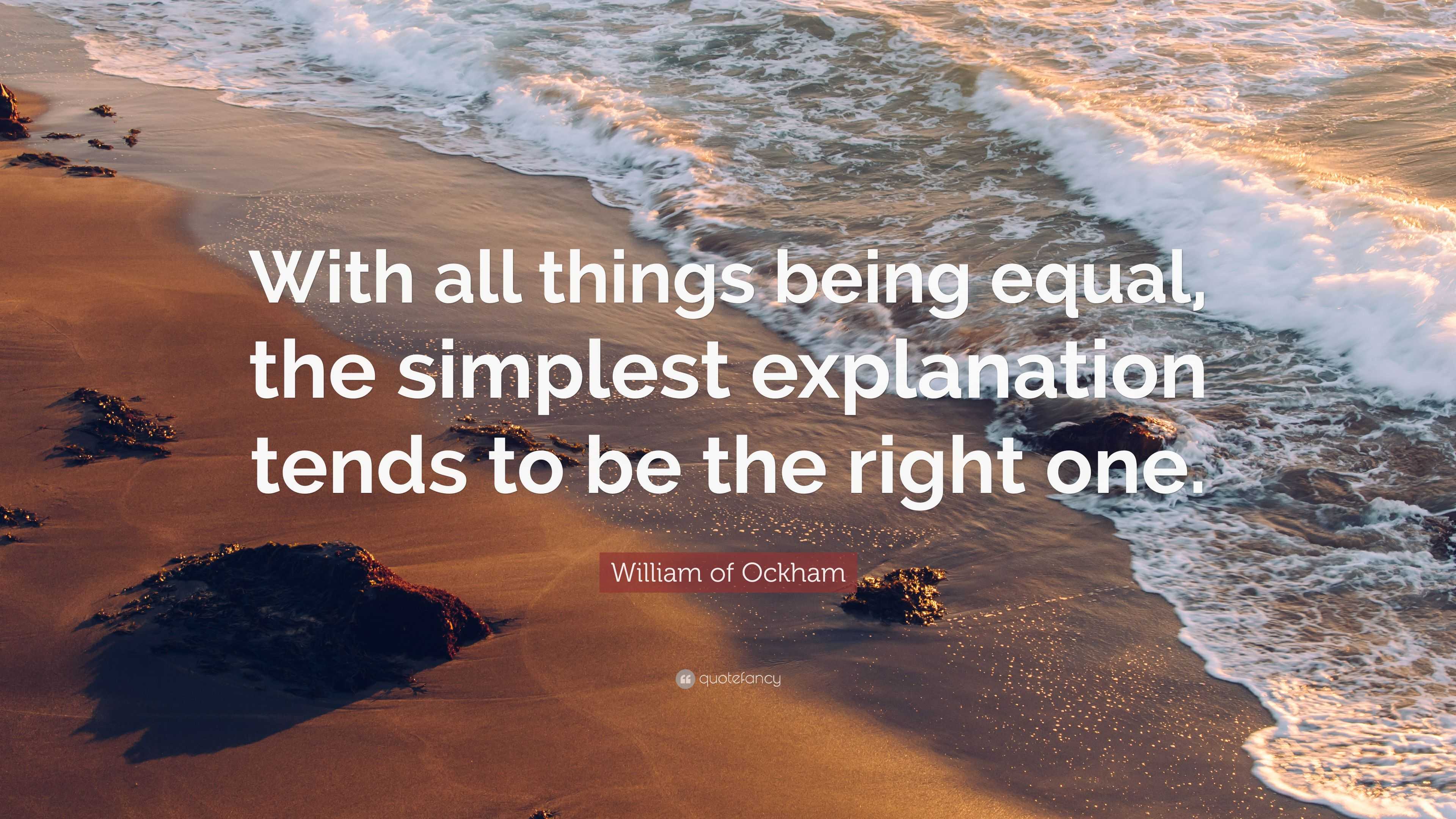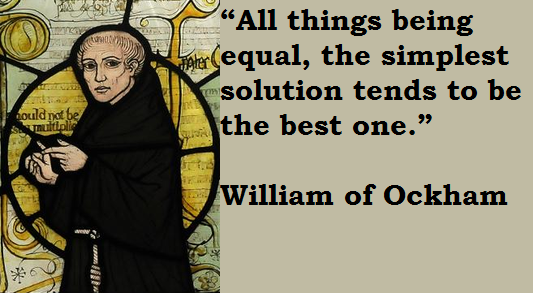

Aristotle was known for the phrase, "The more perfect a nature is, the fewer means it requires for its operation". It's actually the Greek philosopher Aristotle to whom the idea that perfection equals simplicity and vice versa is attributed. Kind of makes you wonder what great wisdom wasn't similarly packaged and is lost forever, doesn't it? By creating a couple of simple sentences, he managed to encapsulate a world of medieval logic, ensuring its safe passage into modern times. William captured the essence of the principle and packaged it in a way that was easily understood (by anyone who knew Latin, at least). In fact, the basis of Occam's razor was an already well-established line of medieval thought by William's time.

One might get the impression that it was this vow of poverty - a form of simplicity - that gave William his big idea. William lived as a philosopher and a Franciscan monk, a pious man who took very seriously his vow of poverty, meaning he lived using only what was absolutely necessary. William lived from about 1285 to 1349, during the medieval age, a time when surnames were uncommon and people were known by their place of provenance. More specifically, its the town where William of Occam was born. So who is this Occam fellow? Actually, Occam (or Ockham) is a town in England, not a man.

William of Occam also known as Franciscan friar William of Ockham. But first, who exactly came up with this simple, yet complex idea? In the next section, we'll learn about the author of Occam's razor. In this article, we'll examine the ability of Occam's razor to become distorted, as well as who distorts it, who prizes it and who shuns it. Sure the sky is blue, we know that by looking at it, but what shade of blue is it exactly? Anyone who has ever engaged in a debate over whether a dark-colored sock is black or navy can appreciate the bias of our worldview and how it affects our decisions. However, one of the key things that Occam's razor reveals is the subjectivity with which we view the universe. All of which points to the principles of plurality and law of parsimony. And when it comes to man-made systems, we tend to base structures upon what we already know works - the simplest explanation to us - like computer memory modeled on our own brain processes. Quantum mechanics works well as a mathematical theory for predictions, but doesn't predict what will happen just what the probabilities of differing outcomes are.Ĭonsider simple systems in nature, like viruses and plants, and their ability to carry out complex tasks such as infection and photosynthesis. Would we have the Internet? Would we have inoculations? The problem solving principle has also been used to justify uncertainty in quantum mechanics. There's no telling what kind of world we would live in today without Occam's razor. Taken together, they represent the basis of humanity's investigation into the universe, and the way we see our environment is largely based upon Occam's razor. The Principle of Parsimony - It is pointless to do with more what is done with less.The Principle of Plurality - Plurality should not be posited without necessity.It is the price he has to pay for being intelligent but not, as yet, intelligent enough. Only man behaves with such gratuitous folly.

Nor do cats attempt, by abstinence from cat's meat, to wheedle the feline spirits into benevolence. Asses do not bray a liturgy to cloudless skies. Dogs do not ritually urinate in the hope of persuading heaven to do the same and send down rain. No horse, for example would kill one of its foals to make the wind change direction. Therefore you never see animals going through the absurd and often horrible fooleries of magic and religion. Thus, no animal is clever enough, when there is a drought, to imagine that the rain is being withheld by evil spirits, or as punishment for its transgressions. So that when he acts on his theories, he behaves very often like a lunatic. Unfortunately, he is not quite intelligent enough, in most cases, to find correct explanations. … Man is impelled to invent theories to account for what happens in the world. Contexto: It is man's intelligence that makes him so often behave more stupidly than the beasts.


 0 kommentar(er)
0 kommentar(er)
